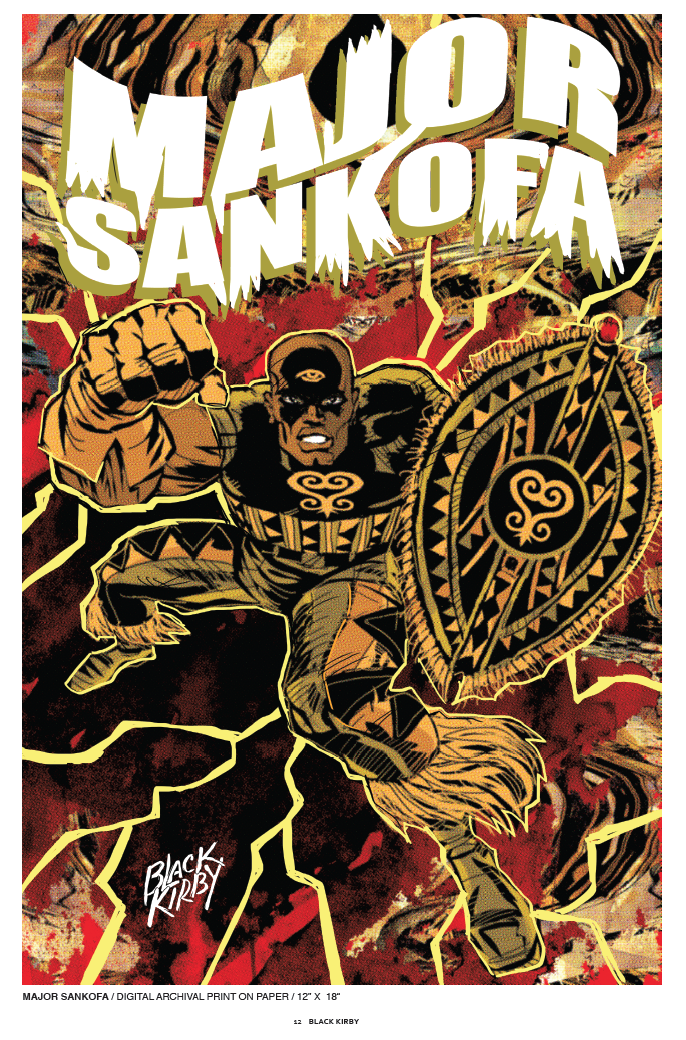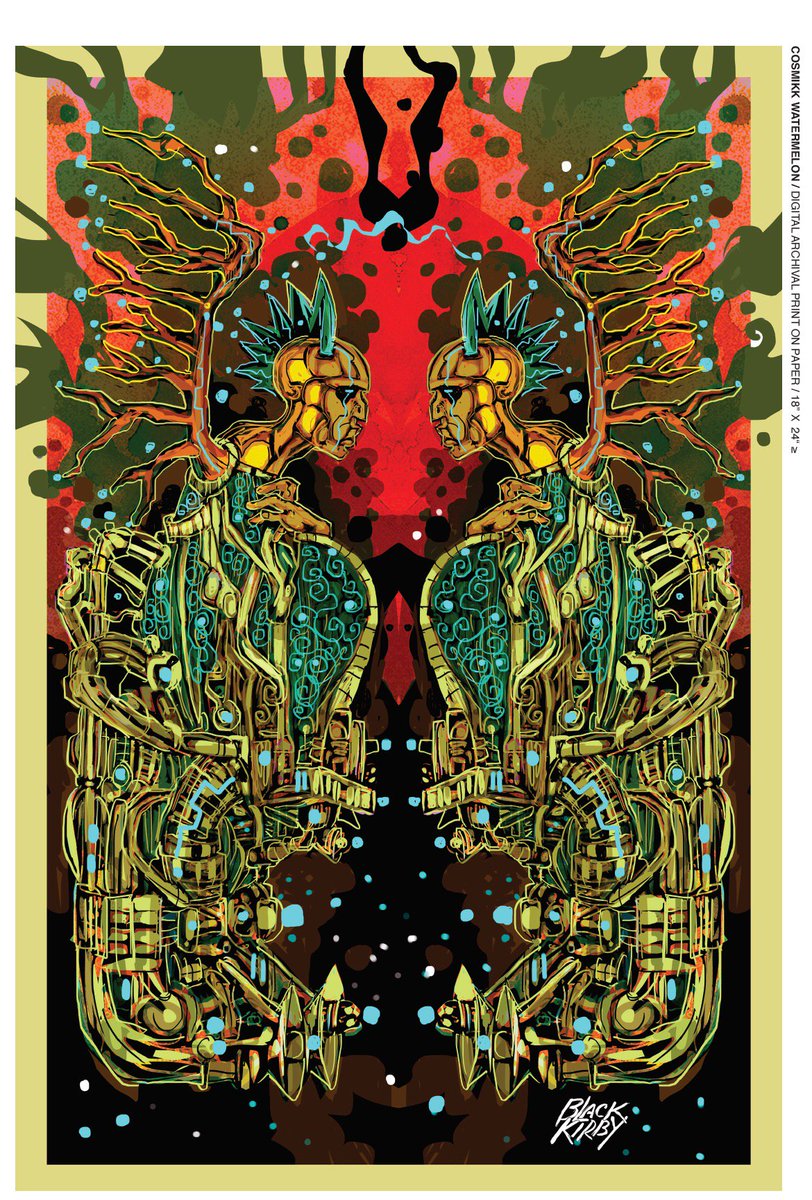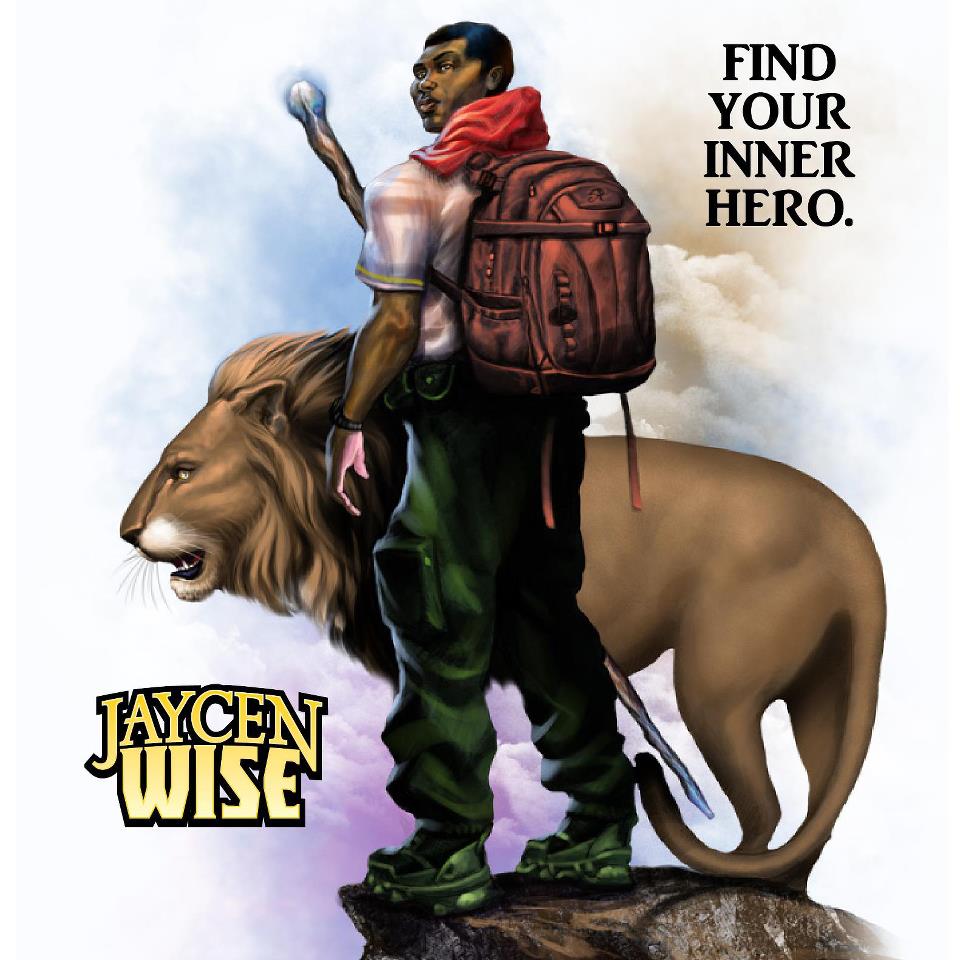Finished Ytasha L. Womack's book Afrofuturism...

My interest in Afrofuturism began with the discovery of it as a sub-genre of sci-fi, but my explorations into it revealed so much more. Womack's book examines Afrofuturism as a cultural movement, of which the sci-fi subgenre is a major part, but explores it origins, the breadth and depth of the movement, it's impact on culture as a whole and its hopes for the future. A caveat, it was written during the peak of the Obama administration and the impact of the first African-American president in the White House and what that might mean for the future of African-Americans and the African Diaspora, as well as the message of hope that was part and parcel of the administrations campaigns permeate and pervade the viewpoints of this book. Some of the hopes for the future seem a bit optimistic and can skew a tad naive in hindsight.
The book is divided into 12 chapters...
-Evolution of a Space Cadet-looks at some of the proto-Afrofuturistic elements that formed the foundation of the movement including Sun Ra, George Clinton, Octavia Butler, Black Nerd Culture etc.
-A Human Fairy Tale Named Black-looks at the fiction which laid the groundwork for Afrofuturism in all media
-Project Imagination-looks the birth of Afrofuturism in the listserv culture of the 90s, early influential voice in the movement and influences of those founders
-Mothership in the Key of Mars-looks at the importance of music in the Arofuturist movement
-The African Cosmos for Modern Mermaids (Mermen) looks at the influence of African folklore and religious traditions (like Dogon culture, the Sirius mystery cults, etc.) on science fiction and Afrofuturism
-The Divine Feminine in Space-looks at the contributions of women in particular to the Afrofuturist movement and the crosspolination between soem feminist movements and Afrofuturism
-Pen My Future-a look at black science fiction writers from Samuel Delaney and Octavia Butler to contemporary writers liek N.K. Jemisin (the current writer of the Green Lantern book Far Sector for DC Comics)
-Moonwalkers in Paint and Pixels-a look at the art and imagery of the Afrofuturism movement
-A Clock for Time Travelers-examines the aspects of time travel in black science fiction and Afrofuturism
-The Surreal Life-examination of Afrosurrealism, a sister/brother movement to Afrofuturism that share a lot of common traits and voices.
-Agent Change-examines the relationship between science fiction and activism, including things like the casting of Nichelle Nichols as Uhura on Star Trek and the first on-screen interacial kiss between Uhura and Kirk, as well as ways science fiction and social activism cross-pollinate ideas and share voices.
-Future World-a look at where Afrofuturism and possibly the world is headed.
All in all a fascinating and through-provoking read, and one that opened up so many new avenues for exploration for me.
If you want to understand the roots of Afrofuturism, look at the trinity at its foundation-George Clinton and Parliament/Funkadelic, Sun Ra, and Octavia Butler. None of them were Afrofuturists per se, but their ideas and influence were the breeding ground of Afrofuturism. Futuristic sci-fi trappings, attire and settings, addressing feelings of otherness, alieness and other such effects associated with being an outsider to the larger mass culture, i.e. the idea of being "other," philosophical and (sometimes) mystical explorations of past, present and future, a hope for change and working towards a better tomorrow in a sense.
If you want a snapshot of what Afrofutirism is in terms a comic fan can understand, look at Wakanda in the hands of Kirby, Priest or Coates, or the Wakanda of the Marvel Cinematic Universe, especially as seen in the Black Panther movie.
If you want to see or hear what Afrofutrism is in contemporary pop culture look at the art of Kerry James Marshall (I posted a sample pic in the Non-Comic Art and Artwork thread) and the Black Kirby Artist Collective*, the music and videos of DJ Spooky (and his remix of the film Birth of a Nation as travelling performance exhibit), the message, tone, look and videos of acts like OutKAst, Jenella Monae, some of the Black Eyed Peas videos and several others.
If you want to read contemporary Afrofuturist science fiction, look to the works of N.K. Jesimin, Nnendi Okorafor, Nalo Hopkinson (current writer for House of Whispers part of the Sandman Universe books at DC), or anthologies like Dark Matter: A Century of Speculative Fiction form the African Diaspora or Mothership: Tales from Afrofuturism and Beyond
If you want to see Afrofuturism on the screen beyond Black Panther, take a look at this award-winning shrot from 2009 called Pumzi about a dystopian future...
and there is so much more to explore.
One area I want to touch upon a little more is the movement I asterisked above...
*Black Kirby
Black Kirby is an art collective that was inspired by Jack Kirby's work on things like Black Panther in FF and its own series and the thematic sense of other Kirby included in a lot of his work because of his Jewish Heritage. They posed the question-"What if Kirby were also a black man?" and began to create Kirby-inspired art in response. It got such a powerful reception that a travelling gallery exhibit was created to showcase the work, and a book on the exhibit and its works was compiled by some of the collective's members...

I haven't read the book yet, I just ordered it form Amazon last night.
But here's the write up of the exhibit when it was at
Michigan State Universityand some of the pieces from the exhibit/collective...


and the exhibit catalog...

One other Afrofuturist comic creation that intriged me, but I haven't been able to track down is the character Jaycen Wise created by Uraeus and appearing in the anthology Black Comix. I have found some pin-up images of the character, but haven't been able to track down any issues of the anthology or the collections drwn form it (one collection is out of print and way out of my price range, the other fairly pricy too).
Here's a couple of images of the character...



I am intensely curious to discover the story behind these images. Anyone with any info where to find copies of Black Comix or Jaycen Wise stories can drop me a note if they choose.
So, I am definitely down the rabbit hole of Afrofuturism. There is just so much stuff here that is adjacent to stuff I already was into that once I opened the floodgates, it was inevitable that I would be inundated with new venues of exploration.
Womack's book is a good introduction, very informative and well written. The art on the chapter headings is wonderful, however, my one quibble is that a book of this type would have been well served with illustrations to highlight the material it was discussion. It may have been a rights/cost issue, but photos of Sun Ra and Parliament in their full on sci-fi costuming, or samples of the art discussed, cover images of books discussed, etc. would all have added to the attractiveness and accessibility of the book. I read the book via Hoopla because it was the quickest way I could get access to the book (and I don't like buying digital copies of stuff). I am on the fence about going out and getting a physical copy for my library. If it had a stronger visual component to serve as a reference to go along with the text, it would have been a no-brainer addition, but the text heavy design and lack of supporting visuals leaves me undecided about shelling out for a physical copy. If I run into one in the wild, I would probably grab it, but I am not going run out to order a copy immediately. Still, I wouldn't hesitate to recommend it to someone who wants to get a good overview and introduction to Afrofutrism (just be prepared to do a few google searches to support visually what you are encountering in the book).
-M